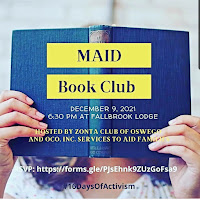452 pages, Kindle, paperback or hard cover,
Published 2014
A Review, by Siobhan O’Hora
This book was recommended to me by my former boss. She knows how passionate I am about women’s issues and she thought that I would appreciate the nature of this story. Although this is fiction, it is not hard to imagine the many truths that unfold in the telling of this story.
Rahima and her sisters live in Afghanistan. Their mother is condemned by her in-laws for only bearing female children and her father is an opium-addicted fighter for a wealthy man who is involved in both the drug trade and politics. Rahima and her sisters only sporadically attend school at the whim of her father and they are very limited in their freedoms because they were born girls. At 9 years old, Rahima’s mother decides that they are going to invoke the ancient custom of bacha posh. They cut Rahima’s hair short, dress her in male clothing, and start calling her Rahim. In essence, making her a boy. In this transformation, Rahim can then attend school, run and play football with the other boys in the village, freely leave the house to run errands for “his” mother, and even get a small job to help support the family. In this custom, families with only girls can alter the looks of one of their daughters to be that of a male until they transform back into a girl when she is of marriageable age.
Rahim was not the first one in her family to go through the process of bacha posh. Her aunt would visit her family and share bits and pieces of the story of their great, great grandmother Shakiba who had also been a girl-boy due to the circumstances of her young life. Rahim(a) grows up listening to stories about her great great grandmother and over the course of time takes strength from Shakiba’s life story and struggles.
This is a story set in somewhat current Afghanistan as it shares the story of Rakima and how her life in some ways mirrors the life of Shakiba a century earlier. It is the story of what the life of a girl in Afghanistan is like…the lack of freedom, the abuse, the poverty, the patriarchal rule, early childhood marriage and enslavement.
As a member of Zonta I was immediately drawn to the plights of both Shakiba and Rahima. Not only because of the injustices they and other women faced throughout the novel, but because I know that women living in Afghanistan are still living with these struggles to this day. This is even more pronounced now that the Taliban is back in control of the country. I felt this book helped me to understand some of the history and culture of this nation. It touched on familial rules as well as what it was like to live in a male run village, a country under a Shah and how women’s roles have changed over time, yet have still remained somewhat the same.
I highly recommend this book as a view into the country and culture of Afghanistan and how women are viewed and treated there.







